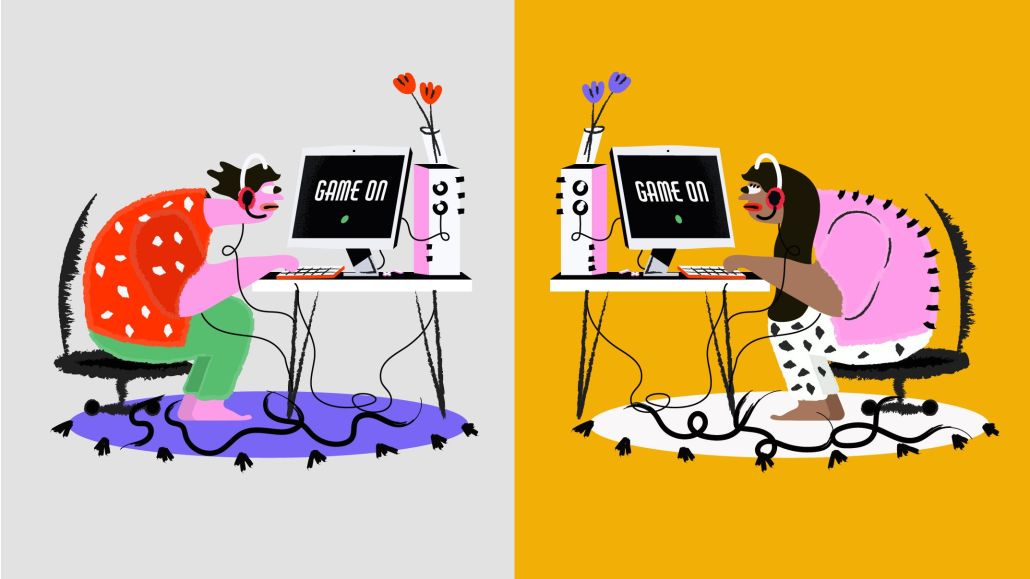Secure your place at the Digiday Publishing Summit in Vail, March 23-25

BMW has officially decided to cut its spending on esports partnerships from 2023 onward, the company said.
“BMW has decided to end its esport[s] engagement from [the beginning] of 2023 on,” said Torsten Julich, a BMW corporate communications representative who previously served as the spokesperson for BMW Esports. “In the future, our focus will be even more on the individual than before.”
Julich indicated that BMW’s recently announced “i Vision Dee” concept car, which comes with a heads-up display unit that can project images across its entire windshield, will play a central role in BMW’s shifting marketing strategy, though he did not elaborate on how exactly games might be played or streamed on the car’s display. The news of BMW’s pullback from esports was originally reported in December by Esports News UK.
Since 2020, BMW has spent millions of dollars on a range of partnerships with esports organizations and events. BMW logos have been present on the jerseys of prominent teams such as G2 Esports, Fnatic, Cloud9 and OG. In total, BMW partnered with 11 different esports orgs between 2020 and 2023, according to the gaming and esports industry data platform GEEIQ.
The value of such esports partnerships can vary widely depending on the scope of the collaboration, but they typically range from tens of thousands of dollars (for one-off activations) to millions of dollars per year (for partnerships involving naming rights and original content).
BMW logos are still visibly present in content from some of these partners. For instance, BMW could still be spotted in a December player announcement by Fnatic, indicating that the team’s partnership with BMW is still in place. But the company is certainly not exploring new esports partnerships as it enters 2023.
However, this doesn’t mean the German auto manufacturer is pulling out of gaming entirely. Another company representative told Digiday that BMW’s focus has merely shifted from esports to other facets of the gaming space, including in-home casual gaming and the metaverse.
BMW’s decision to pull away from esports reflects mounting skepticism among non-endemic brands with regard to the marketing power of esports partnerships.
Although esports organizations offer brands access to a large gaming audience, marketers are beginning to realize that individual gaming influencers can offer the same level of engagement for less money. Gamers are still very sensitive to the presence of ads in their entertainment, and working with individual influencers can help cushion the blow.
BMW’s exit from esports is bad news for esports organizations, which are still reliant on partnership revenue to stay afloat. Many orgs are exploring new revenue streams such as original content and even record labels in a conscious attempt to escape their dependence on brands. But if a larger brand exodus is waiting in the wings, the industry is not fully prepared for it.
“You have to translate that value not just to your own people, but also to the outside world and investors who are demanding things like ROI, KPIs, and that stuff,” said Jason Chung, a professor and director of the esports and gaming initiative at New York University. “And how do you translate that when we know about the various issues that we have, just in terms of structure? Esports is still a marketing exercise for the publisher, and so it’s never really had to navigate that thorny issue in a serious manner.”
More in Marketing

Why Edward Jones’ agentic AI trial comes with limits
Edward Jones tests agentic AI to drive marketing productivity, taking a measured approach as it stops short of full automation.

Footwear brands navigate uncertainty after latest tariffs flip-flop
Some 99% of footwear sold in the U.S. today is imported, according to the Footwear Distributors and Retailers of America.

Brands at eTail Palm Springs share lessons on the ‘messy middle’ of building AI tools
Here’s a rundown of lessons brands have shared about their AI implementations so far.








